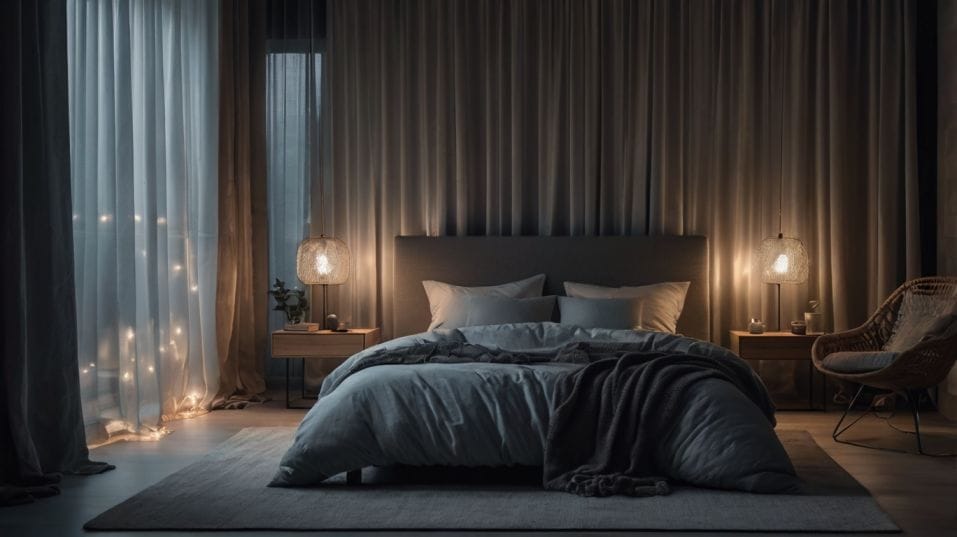Why Burnout Is Often a Sleep Problem in Disguise
Burnout isn't just overwork—it’s broken sleep. Learn simple, science-backed fixes to restore your energy, clarity, and long-term resilience.

Are you pushing harder every day but feeling more drained than ever? It’s easy to blame long hours or endless to-do lists, but the real culprit might be hiding in your sleep.
Burnout often starts the moment your nights stop fueling true recovery. Before you overhaul your life or quit your job, take a closer look at how you’re sleeping.
Fix that first, and everything from your energy to your focus can finally start firing again.
The Invisible Burnout-Sleep Connection
Burnout doesn't show up overnight. It’s a slow bleed—lower patience, rising brain fog, less resilience. Tasks that used to feel automatic now drag you down. Your creativity dries up. You lose your edge.
Meanwhile, poor sleep is pulling the same exact levers behind the scenes.
According to research from the National Sleep Foundation, even partial sleep deprivation (getting less than six hours a night) reduces your cognitive flexibility, kills your reaction times, and shortens your emotional fuse.
In short: sleep debt turns you into the worst version of yourself long before you realize what's happening.
Sleep isn’t just about feeling rested. It’s how your body handles cellular repair, memory consolidation, emotional regulation, and metabolic recovery. When you shortcut that system, your entire stress response goes haywire.
Cortisol spikes stay higher, longer. Blood pressure creeps up. Brain-derived neurotrophic factor (BDNF)—the protein that keeps your neurons firing and your brain sharp—drops off.
The scary part? You can be fully "functional" while massively sleep-deprived. You show up. You check the boxes. You grind. But under the surface, you're running on fumes.

Why "Normal" Sleep Habits Set You Up to Fail
Six hours of sleep isn't a badge of honor. It’s slow-motion self-sabotage. Even if you think you're adapting, your brain isn't.
Research from the University of Pennsylvania found that after just two weeks of sleeping six hours a night, participants showed the same cognitive deficits as those who pulled two all-nighters in a row.
You’re not lazy, undisciplined, or burned out because you can't "keep up." You’re burnt because your brain is trying to run high-stakes operations with corrupted files.
Sleep isn't just about time in bed, either. It's about timing and quality. If you wake up mid-cycle, you're chopping deep sleep and REM phases short—critical periods for memory, recovery, and emotional processing.
If you stay up late and sleep in late on weekends, you throw off your circadian rhythm, making it harder to fall asleep during the workweek. This phenomenon even has a name: social jet lag.
You don’t have to overhaul your whole life to escape it. You just have to start respecting sleep as your ultimate recovery tool, not an optional luxury.
Building a Sleep System That Actually Works for You
Forget quick hacks and fancy gadgets. Real sleep optimization starts with a few non-negotiable fundamentals that fit into any routine—if you actually commit to them.
First: Lock your wake-up time. Most people focus on when they go to bed. The smarter move? Pick a wake-up time and make it non-negotiable. Even on weekends.
Even after a late night. Your brain’s circadian clock resets based on when you wake up, not just when you fall asleep.
Consistency here rebuilds your natural sleep drive, making it easier to fall asleep and wake up without relying on alarms, stimulants, or dragging mornings.
Second: Treat light like a drug. Because it is. Morning light exposure—natural sunlight, not fluorescent office lighting—is a massive cue to your body that it’s time to be alert.
It triggers a surge in serotonin (your mood regulator) and sets a countdown timer for melatonin production 14–16 hours later, helping you wind down naturally at night. Ten minutes of direct sunlight within an hour of waking is ideal.
At night, flip the script. Dim your lights. Cut blue light exposure from screens. If you’re stuck at a computer late, use "night shift" modes or blue light blocking glasses. Even better, swap screen time for a book or a real conversation.
Third: Make your sleep environment cold, dark, and boring. Your core body temperature needs to drop to initiate deep sleep. Set your room around 65°F (18°C). Blackout curtains help if city lights sneak in.
Keep the bedroom as a place for sleeping only—not working, watching TV, or endless doomscrolling. The more associations your brain builds between your bed and sleep, the faster it will flip into shutdown mode.
Fourth: Create a shutdown ritual, not a chaotic crash. Scrolling TikTok until your brain short-circuits doesn't count. Your mind needs a clear “off ramp.”
A hot shower (which causes a rapid cooling afterward, signaling sleepiness), a short meditation, some breathwork, or a few pages of a novel help transition you out of high-alert mode.
No need for a two-hour spa routine. Even ten minutes of consistent, calming behavior cues your brain to release melatonin and start slowing down.
What Happens When Sleep Comes First
When you dial in sleep, you don't just undo burnout. You level up. Your mood stabilizes. Your energy gets consistent.
Your focus sharpens. Work feels lighter because your brain isn't running crisis management 24/7. You react less emotionally. You think faster. You push harder without crashing.
One study from Harvard found that well-rested individuals are 31% more productive than their sleep-deprived peers.
Another study in Sleep Health journal linked good sleep habits with better resilience to daily stressors—meaning you not only survive challenges, you thrive through them.
This isn’t about sleeping twelve hours a night in a pitch-black cave. It's about rebuilding the natural rhythms that high performers—athletes, founders, operators—rely on to stay sharp long-term.
Sleep is not passive. It's active recovery. It's smart energy management. And it's fully within your control.
Final Thoughts
Burnout isn't a badge of honor. It’s a warning sign that your recovery system—your sleep—is broken. You don’t need to quit your job, run off to Bali, or scale back your dreams. You need to start sleeping like someone who plans to keep winning.
Lock your wake-up time. Master light exposure. Cool your bedroom. Build a simple, powerful wind-down ritual. Your best energy, creativity, and momentum are waiting on the other side of better sleep.
Start tonight. Not when the project ends. Not when you're "less busy." Your next breakthrough depends on it.




